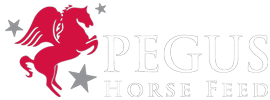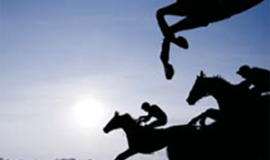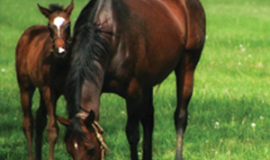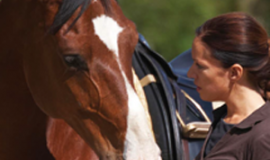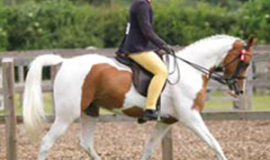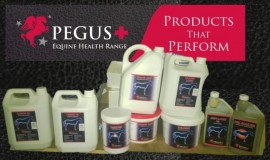The key principles of getting the best from your feed plan is to evaluate, who are you feeding and why.
Selecting an appropriate feed for your horse is not difficult if we ask ourselves some simple questions.
- What is the age of the horse? Young, growing horses have different nutrient requirements compared to mature horses.
- What is the function of your horse? Is the horse pregnant, nursing a foal, a performance horse or at maintenance?
- An appropriate feed can be identified if we consider the feeding of horses in different phases.
1. Age of horse
2. Function of horse
3. Body condition
4. Energy release type – slow or fast
- Every horse is an individual and what works for one may not work for the next.
- Feed to meet the nutritional demands of the sport e.g. Endurance and Polo have totally different needs in feeding.
- Maintain horses in moderate body condition, always check your horse’s weight and growth.
- Control weight gain by exercise/conditioning and the amount and type of feed fed.
- Make sure all basic, essential nutrient requirements are met.
- Never over mix completed feeds with large amounts of grain, as they are balanced and adding extra grain only dilutes the essential vitamins and minerals.
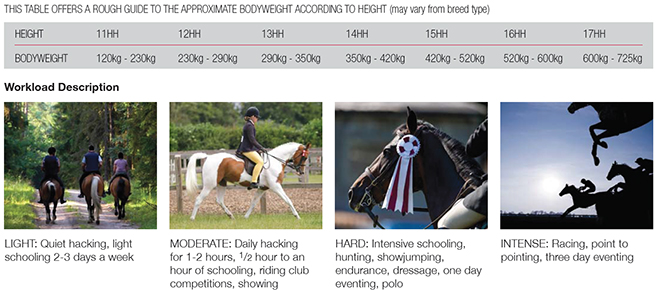
Forage
Since horses have a digestive system ideally suited to digest large amounts of fibrous feeds, forage or fibre should form the basis of
any good horse feeding programme. Therefore, to maintain the health and function of the intestinal tract, forage (hay, pasture, haylage)
is the most important ingredient of the horse’s diet. Identify good quality forages and ideally weigh them so you can estimate the forage
contribution to the nutrition of the horse.
Absolute minimum = 1% of body weight /day
Recommendation = 1.5% of body weight /day
Water
- The most important nutrient
- Horses require large amounts for optimal fermentation in the hindgut.
- The more fibre in the diet, the more water required
- Intake will increase with exercise and warmer temperatures.
Electrolytes
All horses need access to a salt block or loose salt. Both hay and grain are low in sodium and chloride. Introduce a salt block or loose
salt to new horses slowly and make sure that the container will not hold water as a salt ‘brine’ is toxic to horses. All horses need around
2 ounces of salt per day. If they are worked hard they may need the additional electrolytes potassium and magnesium.
During exercise, sodium, potassium, chloride and magnesium are lost in the sweat and urine. Loss of these electrolytes causes fatigue
and muscle weakness and decreases the thirst response to dehydration. Pegus Xtrolyte Powder and Liquid Electrolyte has been
formulated for the replacement of essential electrolyte loss during exercise, stress and travel.
Feeding Tips
- Feed by weight not volume as similar Cubes volume weighs more than mixes
- Protein does not cause excitability – starch, sugars and carbohydrates from grain can.
- Never feed large amounts at one feed, split your feeds into at least 3 /day.
- Remember to value your pasture or forage intake weight as it will determine how you complete your compound feed requirement.
